The POSEIDON consortium consists of a total of 19 partners from 7 countries including 8 industrial partners, 5 research organisations, 2 ports, 2 business support organisations, 1 biomass association and 1 public agency. All partners are fully committed to accelerate the transition towards renewable fuels in EU shipping.
Click on the logos below to find out more about an organisation and its role as a partner in the consortium. Please note that the project partner ‘CAO Hellas Natural Chemicals’ and its affiliated partner ‘CAO Hellas Macedonia’ are presented as a single partner.
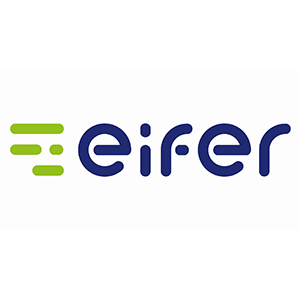
EIFER – European Institute for Energy Research

Research organisation
Germany
Description of the organisation
EIFER was founded by partners EDF and KIT in 2002. It is an independent French-German research institute conducting research in the fields of climate neutral communities, local multi-energy systems, low carbon hydrogen systems and energy transition and markets.
Role in the project
EIFER is the coordinator of the POSEIDON project and leader on the work package on identification of value chain requirements and barriers. It will lead the value chain mapping, the collection of technical data and the development of modelling tools to assess the impacts of various value chain scenarios in Thessaloniki and Valencia.

EDF – Electricité de France

Energy utility
France
Description of the organisation
EDF is a French multinational electric utility company. The company’s operations include electricity generation, construction and dismantling and energy trading. The research and innovation lab Les Renardières will participate in the POSEIDON project.
Role in the project
EDF is leader of the work package on plant demonstration and fuel testing. It will support the definition of the evaluation methodology and build a new Power to X test platform at its R&D site Les Renardières to test the e-methanol demonstration plant developed by partner ICODOS. Several test campaigns will be performed to test the innovative technology and produce the fuel needed for the engine tests.
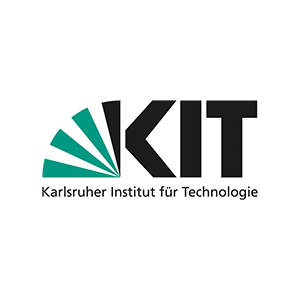
KIT – Karlsruher Institut of Technology
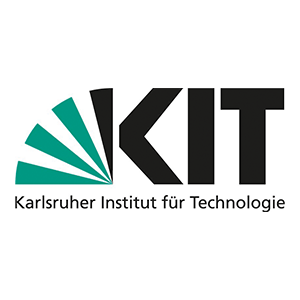
Research organisation
Germany
Description of the organisation
The research of the Institute for Micro Process Engineering of the KIT ranges from the production and testing of highly active catalyst concepts and the chemical reactions and syntheses themselves to reactor design and production, research into downstream separation techniques and innovative analysis concepts. It develops new technologies for the production of synthetic fuels based on renewable sources.
Role in the project
KIT will develop a model of the power-to-methanol conversion process and a digital twin of the whole demonstration plant to run simulations. This will allow to test different control strategies and evaluate the dynamic operation of the plant. KIT will also oversee the quality assurance of the engineering of the ICODOS plant.
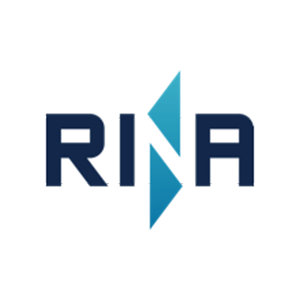
RINA

Engineering consultancy services provider
Italy
Description of the organisation
RINA is a global corporation that provides engineering and consultancy services, as well as testing, inspection and certification across a wide range of markets, including Marine, Energy and Mobility, Real Estate and Infrastructure, Space and Defense, and Industry 4.0. Among other activities, RINA verifies that dual-fuel ships and new concepts incorporating new fuels comply with the applicable rules.
Role in the project
RINA will coordinate the tasks dedicated to the assessment of environmental impacts and social impacts of the value chain implementation by using LCA and S-LCA methods. RINA will also lead the business modelling activity aiming to characterise new business models based on the deployment of renewable fuels such as feedstock valorisation, e-methanol production and use of e-methanol as fuel for shipping.

FV – Fundación Valenciaport

Center for Applied Research, Innovationn and Training
Spain
Description of the organisation
Fundación Valenciaport is a research, innovation and training centre providing services to the port of Valencia and its logistics cluster. It aims to launch new research projects and strengthen the exchange of knowledge between port stakeholders.
Role in the project
FV oversees the work package on replication and deployment strategy. It will assess the market potential of e-methanol as maritime fuel in EU and lead the drafting of deployment roadmap outlining the steps to be taken for a coordinated e-methanol ecosystem development in EU ports. FV will also manage the local community of practice implemented in Valencia.

AUTH – Aristotle University of Thessaloniki

Research organisation
Greece
Description of the organisation
The Aristotle University of Thessaloniki is the largest university campus in Greece, with multiple faculties. The Laboratory of Applied Thermodynamics (LAT) belongs to the University’s Mechanical Engineering department. The lab’s work focuses mainly on automotive, vessel and environmental engineering, as well as clean transportation
Role in the project
LAT leads the work package on the assessment of the implementation of the e-methanol value chain in the ports of Valencia and Thessaloniki. It will summarise the results of the techno-economic, environmental and social studies and identify the most promising scenario of the value chains for each case study.

ICODOS

E-methanol plant manufacturer
Germany
Description of the organisation
ICODOS develops technologies for the utilization of biogas and CO2-rich exhaust. Its last technology combines CO2 capture and methanol synthesis in a hybrid process, resulting in more efficient CO2 capture and reduced operating and investment costs.
Role in the project
ICODOS is work package leader and will coordinate the building of the e-methanol synthesis demonstration plant. ICODOS will be in charge of the complete engineering of the innovative technology which combines CO2 capture and e-methanol synthesis. ICODOS will construct the plant that will consist of different modules that will be assembled together. Once the plant underwent factory acceptance tests, it will be transported to the EDF site Les Renardières for extensive testing under the supervision of partners EDF and ICODOS.

FC – Fincantieri

Ship builder
Italy
Description of the organisation
Fincantieri is one of the largest shipbuilding companies in the world which is leader in the cruise ships, defence vessels, and specialized offshore vessels segments.
Role in the project
FC will help assess the market potential of e-methanol as fuel in shipping. This analysis will both include existing vessels operating on fossil fuels that could be converted to e-methanol and new vessels ones to be built. FC will investigate to what extent e-methanol as fuel and e-methanol based propulsion systems are compatible with the operational requirements of vessel operator and which adaptations need to be made.
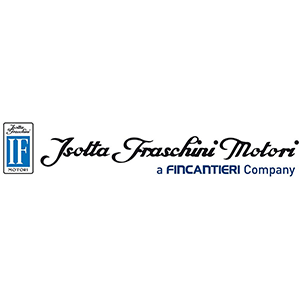
IFM – Isotta Fraschini Motori

Engine manufacturer
Italy
Description of the organisation
IFM develops a full range of modern engines, with outputs from 200 to 3.600 hp for marine, industrial and railway. IFM is part of the Fincantieri group and is committed to develop marine engines running on low carbon fuels.
Role in the project
IFM together with partner STEMS will perform tests on a 4-stroke single-cylinder engine fueled with the e-methanol produced by the ICODOS demonstration plant. Tests will evaluate the overall engine performance, the pollutants and particulate emissions of the fuel combustion and the durability of the engine components.
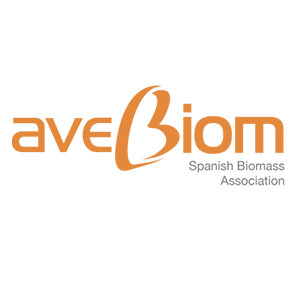
Avebiom

Spanish biomass association
Spain
Description of the organisation
AVEBIOM is an association promoting the development of the Spanish bioenergy sector. It supports the development of new technologies and the creation of new business models relying on bioenergy.
Role in the project
AVEBIOM will carry out communication and dissemination actions and share the results of the POSEIDON project with its network. It will highlight the new business model enabled by the conversion of biogenic CO2 and biogas into biomethane and e-methanol. AVEBIOM will also support the replication strategy by raising awareness of benefits of renewable fuels and by showcasing the potential linked with the conversion of biomass into valuable chemical products.
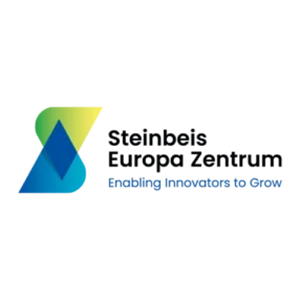
Innovation consultancy services provider

Innovation consultancy services provider
Germany
Description of the organisation
Steinbeis innovation is a non-profit organisation that belongs to the Steinbeis foundation. It is specialized in innovation management, market development and strategic partnerships and support innovations leading to more sustainable society and industrial change.
Role in the project
Steinbeis is leader of the work package on communication, dissemination and exploitation. It will develop a communication materials and coordinate dissemination measures to best reach out to the target groups. Steinbeis will define an exploitation strategy with the support of the consortium, thus paving the way for the use of results after the project completion.

GOMSL – Global Omnium Medioambiente S.L.

Business group dedicated to water management
Spain
Description of the organisation
Global Omnium Medioambiente S.L. is part of the Global Omnium group, which focuses its activity managing all phases of the integral water cycle, developing several complementary lines of business: creating sustainable synergies to optimise water resources, manages over 350 WWTPs, and produces more than 19 million kWh per year by biogas cogeneration. It is certified by AENOR for the Management Systems for Environment (ISO 14001), Energy (ISO 50001) and R&D&I (UNE 166002).
Role in the project
GOMSL will be involved in the evaluation of the value chain implementation by providing technical data and biogas generation and treatment from wastewater treatments plants (WWTPs), barriers and bottlenecks for the deployment of the novel power-to-e-methanol technology developed by partner ICODOS. GOMSL will also perform pre-engineering studies for the integration of a power-to-methanol at one WWTP.
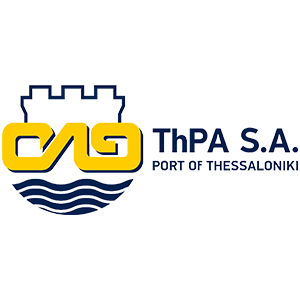
ThPA S.A. – Port of Thessaloniki

Port authority
Greece
Description of the organisation
ThPA S.A. operates the port of Thessaloniki and its intermodal network. It handles containers and conventional cargo, offers logistics solutions and intermodal rail services, and serves passenger traffic through cruise and ferry.
Role in the project
ThPA S.A. – Port of Thessaloniki will be the manager of the community of practice in Thessaloniki. This community should strengthen collaboration between local partners, foster knowledge exchange on the topic of renewable fuel and actively co-create the roadmap for the implementation of a local value chain in Thessaloniki. ThPA S.A. will investigate the best location for e-methanol storage systems and refueling stations within the port area and identify the ships docking at the port that could be powered with renewable fuel.
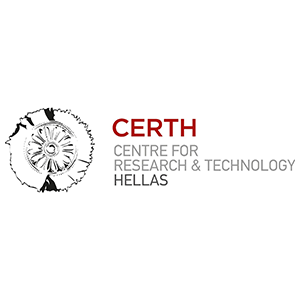
CERTH – Centre for Research and Technology Hellas

Research organisation
Greece
Description of the organisation
The chemical process and energy resources institute of CERTH focuses on the development of low carbon fuels, chemicals and carbon capture storage and utilization techniques to decarbonize energy-intensive industries and long distance transportation.
Role in the project
CERTH will oversee the techno-economic analysis and life cycle costing of the e-methanol value chain implementation. Different criteria such as CAPEX, OPEX, and energy efficiency both at the production and consumption level will be evaluated. CERTH will support the creation of a library of components that will serve as database for the modelling tools to be developed in the frame of POSEIDON. CERTH will also be involved in the experimental work on innovative capture technologies to recover industrial CO2 from industrial sites.
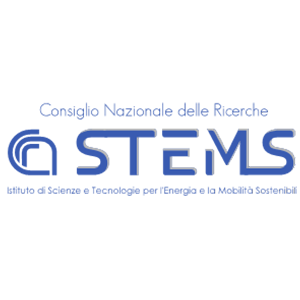
STEMS – Institute of Sciences and Technologies for Sustainable Energy and Mobility

Research organisation
Italy
Description of the organisation
The institute of advance propulsion system of STEMS works on new powertrain and renewable fuels. Research activities include fluid dynamics, thermodynamics, combustion in thermal machines, fuel-machine interaction, thermal and hybrid powertrain development.
Role in the project
STEMS will be involved together with partner IFM in the testing of e-methanol using a 4-stroke single cylinder engine. It will also develop a model to extrapolate the experimental results to multi-cylinders full scale engine and be able to assess the engine performance and emissions. It will be checked if engines comply with emissions requirements and whether complementary equipment like gas treatment systems are necessary.

SMA – Swedish Maritime Administration

Public authority
Sweden
Description of the organisation
SMA is a government agency which ensure that sea lanes remain open and safe in Sweden. Its services include pilotage, maintenance of marine fairways, ice-breaking, hydrographics, maritime search.
Role in the project
SMA will test the produced e-methanol in a methanol powered boat. The pilot ship is a retrofitted ship that previously run on diesel and was converted to methanol in the frame of the EU funded FASTWATER project. SMA will also be involve in the market study of e-methanol as e-fuel in the European port maritime sector and support dissemination of results.
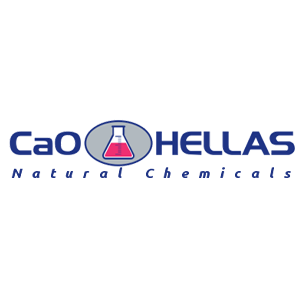
CAO Hellas Natural Chemicals

Lime producer
Greece
Description of the organisation
Cao Hellas Natural Chemicals and Cao Hellas Macedonia are companies specialized in environmental and metallurgical applications. They belong to the same group of companies producing specialized lime products. The Cao Hellas Natural Chemicals plant in Volos and the Cao Hellas Macedonia plant in Thessaloniki will be investigated in more depth as part of the Greek case study.
Role in the project
Cao Hellas Natural Chemicals and Cao Hellas Macedonia will be involved in the community of practice in Greece and in the detailed assessment of the case study in Thessaloniki. They will support the development of a roadmap for the implementation of a new value chain. They will participate in the market study for the use of industrial CO2 from lime plants as feedstock for the production of e-methanol and evaluate the replication potential in the EU.

WinGD – Winterthur Gas & Diesel

Engine manufacturer
Switzerland
Description of the organisation
WinGD is a leading developer of low-speed gas and diesel engines for marine propulsion. The company is committed to deliver engine technology to enable the use of clean and low carbon fuels.
Role in the project
WinGD will oversee the fuel testing activity. It will examine the combustion characteristics of e-methanol in a dedicated test rig and in a 2-stroke single cylinder engine. An assessment of pollutants, particulates and GHG emissions will be performed to compare the combustion of e-methanol to other conventional marine fuels. Together with partner AUTH, WinGD will develop a combustion and emission model to extrapolate the results to multi-cylinder 2-stroke engines.
